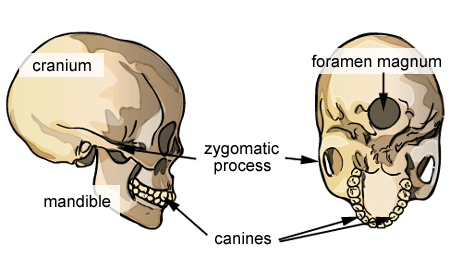profession: astrophysicist/neurosurgeon
I’m sure you’ve heard the phrase “it’s not rocket science” to describe something that should be easy. So Raymond Chen asks what actual rocket scientists say when they want to describe something easy. The common answer seems to be “it’s not brain surgery.”
Turns out that neurosurgery is not exactly the most delicate of surgeries, nor is it a field with all that much hard data. Most of the time, it involves boring a hole in someone’s skull or carving out a chunk of bone, and sort of mucking around in there. While precision would be nice, most of the things neurosurgeons have to do don’t really have the luxury of precision. It’s usually about hacking out a tumor, draining a pocket of pus, or more commonly, evacuating a large expanding collection of blood before the patient’s brain exits out of the foramen magnum, because of increased intracranial pressure, a process that is also known as herniation. Sometimes, they luck out, and it’s not quite so emergent. Then it’s usually about disconnecting parts of the brain to stop intractable epilepsy, or jamming an electrode into the grey matter for some deep brain stimulation. While obviously it takes some surgical skill, it’s nowhere near the incredible precision that is required in fields like pediatric cardiothoracic surgery. (I would hazard to say that it’s not easy to operate on a 6 day old ex-premie.) Other surgical fields that require almost superhuman feats of manual dexterity include vascular surgery (because it tends to be a high risk sort of surgery, mostly because, as clinical language would put it, “you’re working on a pretty poor substrate”), hand surgery (where they use sutures that are finer than a human hair in order to sew together peripheral nerves), and retinal surgery (which is a sub-sub-specialty.)
But if you’re talking about cerebral processing power, I dunno. I’d probably go with either allergist/immunologists or rheumatologists, because they’re both hard core bench-research type of specialties. They’re the physicians who are more likely to be talking regularly about biomolecular signaling pathways and molecular recognition mechanisms. The computer science equivalent would probably be like being able to comprehend straight-up machine language without even bothering with the assembly code.
While I am a physician (although not the kind that does anything cool like the things I mentioned above), I’m certainly not a physicist. When someone says “rocket science,” do they simply mean the engineers who figure out ballistic missile trajectories and how to get a space probe to Saturn with the least amount of fuel? (No mean feat, although they do have the help of computers.) Or do people mean astrophysics? Like cosmology, string theory, the theory of inflation, loop quantum gravity, that sort of stuff? I think it would be pretty impressive to be able to imagine 11-dimensional space-time.
